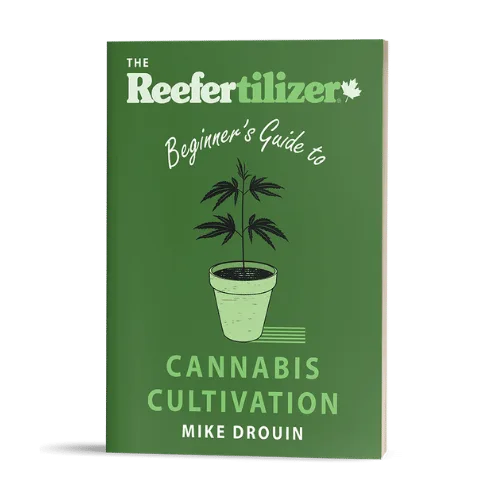If you grow cannabis at home, no one needs to tell you what fungus or pesticides mean to a plant. This is especially true for growers of medical cannabis.
Except for Quebec and Manitoba (only allows medical cannabis), every household in Canada has permission under the law to grow up to 4 cannabis plants for personal use. Untold thousands of Canadians are growing cannabis from the comfort of their own homes. It’s thanks to the legal cannabis industry that we have more access to cannabis and newer products.
Of course, growing your own cannabis is more than just for medical purposes, it also makes financial sense. A few seeds can bloom an incredible bounty of potent, quality, terpene-rich goodness. How different is organic LP cannabis compared to home-grown? Today let’s explore the choice between homegrown cannabis vs. store-bought organic cannabis.

Licenced Producers Cannabis
So what’s organic cannabis?
Before we begin with that question, let’s talk about what organic cannabis certifications is in the industry. If you are in the US, it’s following USDA Certified Organic rules for hemp. Canada has no official government-accredited certifications for organic – yet. If you’re a US hemp farmer, getting a USDA certified organic seal is an amazing deal. The certification costs between a few hundred to several thousand, depending on the size, but once certified, the USDA Organic Certification Cost-Share Programs reimburses eligible operations up to 75 percent of their certification costs.
One day Canada might have its own federal organic certification programs. So what is organic cannabis? The answer is that it depends on what you want to keep organic. As a matter of fact, most of the store-bought cannabis is not organic. Only two or three Licensed Producers are currently certified-organic in Canada, with more companies coming.
It’s not hard to understand why people would want an organic certification stamped on a cannabis product, because they want to know their products are safe. Adding seals of approval or checks can help to bring down the existing stigma about cannabis as safe for them.
In 2017, for example, Mettrum was caught using a banned pesticide, myclobutanil, which is poisonous when heated because of its hydrogen cyanide. Most cannabis that comes from Licenced Producers come into contact with chemical fertilizers, pesticides, GMOs, irradiation, industrial solvents, and other artificial inputs often used to kill off bacteria.
Health Canada told the Calgary Herald since 2018 the cannabis industry generally has a high rate of compliance, having ordered only 5 product recalls — all due to mislabeled CBD and THC content.

Licenced Producer Organic Cannabis
So business as usual is just making sure that cannabis is kept safe within limits. However, Canadian companies are starting to adopt organic processes for recycling resources, ecological balance, and conserving biodiversity into growing operations.
Habitat Craft Cannabis was the first to call themselves certified-organic cannabis, receiving an Organic Aquaculture Standard Certification for the watering system that feeds the plants. This was awarded by the Canadian General Standards Board that focused more on the aquaponic standards than the plant itself.
In Habitat’s public statement, “Organic certification gives the consumer the assurance that the product is produced without potentially harmful inputs.” So for Habitat, certified-organic cannabis means no synthetic pesticides, no synthetic nutrients, no GMOs, no antibiotics, and no added hormones.
Habitat may be the first but The Green Organic Dutchman (TGOD) in Quebec has put sustainable practices to the forefront when it comes to green design. TGOD isn’t truly organic but it’s buildings are sustainable, certified by Ecocert Canada, LEED, and Pro-Cert.
So what’s the bottle-neck?
Why doesn’t cannabis have a nation-wide organic certification standard? This sort of authoritative seal of approval should come from the Canadian Food Inspection Agency (CFIA), pushed along by the Organic Federation of Canada. Together, only they can make the regulations and decisions needed to show how to treat cannabis.
As of early 2020, the CFIA has been clear that it puts organic cannabis production standards outside of its Canada Organic Regime. That’s because cannabis is governed by the Cannabis Act and not the Safe Food for Canadians Act.
Both homegrown and store-bought cannabis are regulated under the 2018 Cannabis Act. Thankfully, it’s no longer a crime to use cannabis under the Controlled Drugs and Substances Act. It’s also not a food law under the Safe Food for Canadians Act. Think of cannabis more like tobacco, which is why you’re unlikely to ever see an organic logo on a package of cigarettes.
This might look like the doors are closed for having a plan for organic cannabis beyond the basics at the LP level — which is probably why homegrown will almost always we better — but if companies like Habitat and TGOD are telling us, it’s that the doors are opening.
So far, only California has jumped ahead with proposing a state-wide organic cannabis standard, under the OCal Program. The plan is to roll out a new organic cannabis certification in California to give businesses an opportunity to differentiate themselves.
Which is better: LP Organic or home-grown?
You decide.
Health Canada’s rules are intended to check for safe limits. This is why packages and labels that say 10 mg must have that amount and not to exceed 100 mg per package. Health Canada also tests the THC and CBD limits, especially for edibles.
People have gotten sick from contaminated cannabis, so regulators want to make sure everyone has been properly trained and know how to manage pesticides, water, butane, carbon dioxide, ethanol and other solvents used in cannabis processing.
Pros for Buying Store-bought Organic Cannabis
- Convenience, without a doubt, is the best reason. It takes up to three and four months before you will see your first buds when you cultivate – it’s quicker to buy it.
- Guaranteed level of quality from any legal cannabis product, lab-tested, and labelled.
- Access to a wide range of strains and products you simply couldn’t do on your own.
- Access to cannabis knowledge, which can be helpful to growers or those interested in cannabis.
Pros of Growing Your Own Organic Cannabis
- Full control over the cannabis you grow, even though it takes skill to do it well.
- You know where your seeds come from and a lot more about the plant.
- In the long-term, a financially beneficial way of consuming cannabis.
- Experimentation can lead to amazing cannabis.
- Few organic LPs, harder to see who is organic.
Additional Information
If homegrown organic sounds like it’s for you, check out these articles:
About the Author

Milton Wani is a writer at Consult & Grow, a cannabis consulting firm based in Montreal. He authored the Retail Cannabis Handbook and is currently working on his second book, which looks at cannabis and its effects on health.
If you want to learn even more about growing good cannabis, we offer a free 40+ page guide full of images.
Now available on Amazon.
Sign up for our newsletter and download the digital copy today!

This guide will answer many questions about growing cannabis, like the following...
Selecting Seeds
Identify and Correct Problems
Maximize Yield
Much More...
Get a Chance to INSTANTLY WIN a Reefertilizer Nutrient Kit When You Sign Up.
Milton Wani is a writer at Consult & Grow, a cannabis consulting firm based in Montreal. He authored the Retail Cannabis Handbook and is currently working on his second book, which looks at cannabis and its effects on health.
